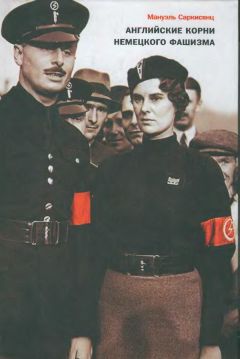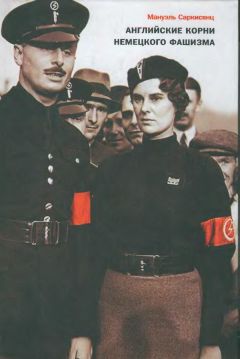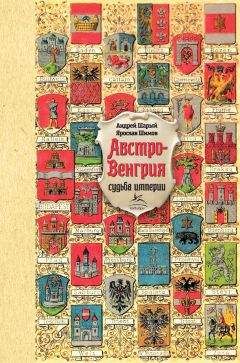360
Оруэлл утверждал, что практически любой рабочий-англичанин даже правильное произношение иностранных слов считает «бабьим» (то есть достойным презрения) (прим. автора).
Hans Grimm, «bm politischen Dichter. Geistige Begegnung mit Rudyard Kipling» Das Innere Reich (October 1935/March 1936), S. 1458; K. D. Ewing and C. A. Gearty, The Struggle for Civil Liberties… in Britain 1914–1945 (New York, 2000), p. 35; Madeleine Bunting, The Model Occupation (New York, 1995), p. 331; Lord Alfred Milner, Nation and Empipre… Collection of Speeches (London, 1913), p. 353; Scott Newton, Profits of Peace. The Political Economy of Anglo-German Appeasement, p. 152; Georg Orwell, Collected Essays. Journalism and Letters. Edited by Sonia Orwell. Vol. I (London, 1968), p. 67.
Paul Kennedy & Anthony Nicholls (Editors), Nationalist and Racialist movements in Britain and Germany before 1914 (Oxford, 1981), S. 183, 173, 175; Geoffrey Crossick (Editor), The lower Middle Class in Britain (London, 1977), p. 94; cf. Robert Roberts, The classic Slum. Salford life… (n. p., n. d.) p. 183.
Например, на выборах поздней осенью 1885 г. во время британского завоевания Верхней Бирмы (прим. Автора).
Briton Martin, New India 1985, British official policy and the emergence of the Indian National Congress (Berkeley, 1969), p. 242, 248f, 254, 260f, 267.
R. Thurlaw, Fascism in Britain, p. 19; B. Shaw, Man and Superman (1903), pp. 264, 268; G. R. Searle, The Quest for National Efficiency, p. 95.
Ibid., p. 61, 96; B. Semmel, Imperialism and Social Reform (London, I960), pp. 50f, 53–82, 216–233.
Ibid., p. 140.
Lord Milner's «Credo»: The (London) Times of 27. July, 1925, quoted in A. M. Gollin, Proconsul in Politics… Lord Alfred Milner (1964), p. 129.
G. R. Searle, Quest for National Efficiency, p. 58f.
Ernst Nolte, Krise des liberalen Systems und die faschistischen Bewegungen, S. 330f; Hans-Christoph Schroder, Imperialismus und antidemokratisches Denken: Alfred Milners Kritik am politischen System England (Wiesbaden, 1978), S. 12, 22, 27ff, 43, 55; Gollin, pp. 73, 98, 93, 96, 94f (quoting Daily Mail of 30. March, 1906); Walter Nimocks, Milner's Young Men: The «Kindergarten» in Edwardian Imperial affairs (London, 1968), pp. 57ff.
Hannah Arendt, Elemente… totaler Herrschaft, S. 343, 345f.
Francis G. Hutchins, The Illusion of Permanence. British Imperialism in India (Princeton, N. Y., USA, 1967), p. 113; Greenberger, British Image of India, p. 27.
Robert Colls & Philip Dodd, Englishness. Politial and cultural 1880–1920 (London, 1986), p. 295.
Malcolm I. Thomis& Peter Holt, Threats of Revolution in Britain 1789–1848 (Hamden, Conn., USA, 1977), p. 127.
Ibid., pp. 7f.
A. J. Sherman, Island refuge. Britain and the refugees from the Third Reich (Berkeley, 1973), p. 219; Paul de Lagarde, Deutsche Glaube (о. O., 1914), S. 123.
R. Huttenback, Racism and Empire, p. 17.
Бартлетт Эллис Эшмед (1848–1902) — англ. политический деятель, депутат от консерваторов.
Colls & Dodd, Englishness, p. 297.
«Rule Britannia, rule the waves, Britons never shall be slaves» (англ.).
R. Huttenback, Racism and Empire, p. 13.
M. Foss, England als Erzieher, S. 26; R. Faber, The Vision and the Need. Late Victorian imperialist aims (London, 1966), p. 122 cited by G. E. Witson, English ideology, Studies in the language of Victorian politics (London, 1973), p. 198.
Ibid., p. 26.
Adolf Hitlers Zweites Buch. Ein Dokument aus dem Jahr 1928 = Institut fur Zeitgeschichte, Quellen und Darstellungen zur Zeitgeschichte, Band VII (Stuttgart, 1961), S. 63.
R. Walter Darre, Neuadel aus Blut und Boden (Munchen, 1930), S. 133, 218f; Dibelius, England, II, S. 200.
Ibid., S. 200, Dietrich Aigner, Das Ringen urn England. Dasdeutsch-britiscrte Verhaltnis. Die offentliche Meinung 1933–1939… (Munchen, 1969), S. 97.
John Stuart Mill, On Liberty (New York, 1975), p. 58. Ср.: Милль Джон Стюарт. О свободе / Пер. М. Ловцовой. СПб.: Изд. В. И. Губинского. 1901. С. 136.
Dibelius, England, II, S. 221.
Ibid., S. 58f. Ср.: Милль Джон Стюарт. О свободе / Пер. М. Ловцовой. СПб.: Изд. В. И. Губинского. 1901. С. 121.
Manfred Henninger(Hrsg-), bm Nationalstaat zum Empire. Englischespolitisches Denken im neunzehnten Jahrhunder (Munchen, 1970), S. 144.
John Stuart Mill, On Liberty (New York, 1975), p. 67. Там же, с. 143.
Carl Peters, England und die Englander, S. 198.
David Spitz, in: John Stuart Mill, On Liberty (1975), p. 6. Там же, с. 19–20.
Брэдло Чарлз (1833–1891) — англ. вольнодумец и радикал, отстаивал свободу личности и критиковал парламентаризм. Избран депутатом в 1880 г., но, будучи атеистом, принял присягу только в 1886 г.
Dibelius, England, I, S. 221.
Greenberger, The British Image of India, p. 26.
J. A. Froude, Short Studies on great subjects (London, 1888), IV, p. 238f; James Fitzjames Stephen, Liberty, Equality, Fraternity (London, 1874: reprint Cambridge, 1967), p. 102f.
Стефен Джеймс Фицджеймс (1829–1902), 1-й баронет — англ. судья и литератор.
Ibid., p. 103f.
A. J. Sherman, Island Refuge. Britain and the Refugees from the Third Reich (Berkeley, 1973), p. 219.
James Drennan, Der britische Faschismus und sein Fuhrer (Berlin, 1934), S. 219.
Benjamin Disraeli, Coningsby, Book IV, Chapter xv = Benjamin Disraeli, Earl of Beaconsfield, Novels and Tales, blume (London, 1927), S. 260.
Thomas Carlyle, Historical View of the French Revolution, I, Book vi, Chapter 2 = Carlyle, The French Revolution, Vol. I (New York, 1922), S. 177; Карлейль Т. История Французской революции / Пер. Ю. Дубровина и Е. Мельниковой. М.: Мысль. 1991. С. 142.
Dibelius, England, II, S. 203.
Wolfgang Fritz Houg, Faschisierung des burgerlichen Subjekts und die Ausrottungspraktiken im deutschen Faschismus (Berlin, 1986), S. 88.
John Stuart Mill, On Liberty (1859: reprint New York, 1974), p. 65.
Matthew Arnold, Culture and Anarchy (London, 1869: reprint New Haven, USA, 1994), p. 35f, 227.
John Stuart Mill, On Liberty (New York, 1974), p. 65; Милль. О свободе. С. 140.
Dibelius, II, S. 163, 200.
Ibid., S. 200; Carlyle, Later Day Pamphlets (London, 1911), p. 19, 21ff, 142f, 114, 193, 2l3ff, 27f, 232f, 246; James Anthony Froude, Thomas Carlyle, A history of the first forty years of his life (London 1882), p. 2, 15f, 19. Карлейль Т. Памфлеты последнего дня / Пер. А. Белова. СПб.: изд. Ф. И. Булгакова. 1907. С. 19, 14, 80, 19, 93.
Ibid., р. 202, 204, 132, 30f, 14iff, 38f, 35ff, 211, 40, 155; Там же. С. 21, 92, 57.
W. С. Houghton (1970), S. 328; vgl. H. Rauschning, Gesprache mit Hitler (Zurich, 1940), S. 211.
A. W. Ward & A. R. Wallers (Hrsg.), Cambridge History of English Literature, Vol. XIII (Cambridge, 1916), p. 22.
Gerald Newman, The Rise of English Nationalism (London, 1997), p. 244.
Paul B. Rich, Race and Empire in British Politics (Cambridge, 1986), p. 13.
Simon Heffer, Moral desperado. A life of Thomas Carlyle (London, 1995), pp. 177, 263, 292, 341, 379, 19.
G. C. Webber, Ideology of the British Right (London, 1986), p. 72; Selwyn, Hitler's Englishman, p. 30.
Alfred Cole, Lord Haw-Haw — and William Joyce (London, 1964), pp. 80, 87.
Ernst Wicklein, Vorwort zu: Thomas Carlyle (Eugen Diedrich Verlag, Jena, 1922), S. 5.
Simon Heffer, Moral desperado. A life of Thomas Carlyle (London, 1995), p. 23; Bertrand Russel, History of Western Philosophy (1946).
Об этом свидетельствуют его рассуждения в «Фридрихе Великом», а также письмо в «Times» по поводу франко-прусской войны 1870–1871 гг., и особенно его труд о норвежских королях (прим. автора).
Anglo German Review, II, № 2 (January, 1938), p. 51.
H. F. Guessen, Lecture «Carlyle and Hitler»: Klaus Schreiner, «Wann kommt der Retter Deutschlands? Formen und Funktionen des politischen Messianismus in der WeimarerRepublik», in Saeculum, XLIX (1998), S. 15.
Tennyson, quoted in: Matthew Arnold, Culture and Anarchy (1965), pp. 150 f; Herbert Beer, Fuhrers und Folgen. Herrschen und Beherrscht werden im Sprachgut der Angelsachsen: Ein Beitrag zur Erforschung von Fuhrertum und Gefolgschaft (Breslau, 1939), cited in: G. StrobI, The Germanic Isle. Nazi perceptions of Britain (Cambridge, 2000), pp. 83f, 243.
Thomis & Holt, Threats of Revolution in Britain, p. 128.
John Morley, The life of Richard Cobden (London, 1903), p. 130.
Thomis & Holt, Treats of Revolution in Britain, p. 23; G. M. Trevelyan, History of England, Vol. Ill (New York, 1952), p. 85, 87, 89–92.
Thomis & Holts, Treats of Revolution in Britain, p. 128; cf. E. S. Thompson, The Romantics. England in a revolutionary age (New York, 1997), pp. 9, 43, 16, 2, 165; Wingfield-Stratford, The Squire and his Relations, p. 246; Don Herzog, Poisoning the mind of the Lower Orders, p. 124f.
Блейк писал:
«Пусть раб восстанет.
Его цепи разбиты.
Его тюрьмы не стало…
Ангел Альбиона яростно сжигает.
И вот гляжу, в лучах зари,
Лицом совсем как Кэстльри (Каслри, министр короны),
Убийство, с ликом роковым,
И семь ищеек вслед за ним…»
(Маскарад анархии / Пер. К. Бальмонта // Шелли П. Б. Избранное. М., 1997. С. 89.)





